Features
SRI LANKA AT CROSS-ROADS AND THE NEW DEVELOPMENT PARADIGM
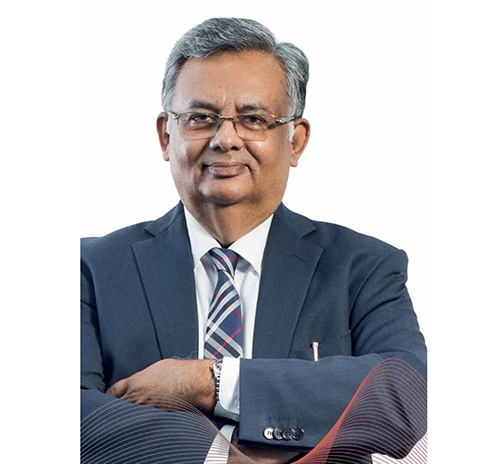
by Dr. Dayanath Jayasuriya
President’s Counsel
Compared with most other erstwhile British colonies, independence was granted to Ceylon virtually on a silver platter. This statement is not meant to undermine the efforts of our own freedom fighters who without bloodshed managed to convince the colonial ruler that the country was gradually getting ready for independence. The Donoughmore system of government was a precursor to the decision for self-rule. When the first independence constitution was drafted, with the able assistance of Sir Ivor Jennings, there were simmering issues that the draftsmen took into consideration. Rights of minorities and stateless persons, religion, language of instruction, parity of status and land rights were among the many issues which multi-ethnic, multi-religious and multi-lingual issues that typically encounter when power is to be transferred from a colonial ruler to a self-elected body of representatives. The British approach varied from country to country; in India, for instance, the issue of the division of India and East and West Pakistan was left to be resolved after independence was granted.
In 1972, the first constitution was replaced with the country becoming a Republic and changing the name from Ceylon to Sri Lanka. Prior to the enactment of the Constitution, which followed an ad hoc method of working through a Constituent Assembly, the right of appeal to the Judicial Committee of the Privy Council was abolished. Her Majesty the Queen ceased to appoint her representative as Governor. During the period 1971 to 1977 the country witnessed many issues; an insurrection by a large number of youth was quelled within a short-time by then then Prime Minister Sirima Bandaranaike and the rise in global petroleum prices had a severe impact on the country. Import restrictions, ceiling on ownership of houses and land, nationalization of foreign industries etc. took place but with mixed results.
In 1977 a new Constitution was enacted. The Executive President, J. R. Jayewardene, led the initiative to liberalize the economy. With free trade and various expensive developmental projects, corruption began to erode the system slowly but surely. Even though the early signs of Sri Lanka becoming a transit centre for international drug smuggling, arms smuggling, illegal gambling, casino and sex establishments became evident but these were largely ignored by law enforcement agencies. This Constitution still remains in place, notwithstanding a record of 19 amendments. The 19th amendment was meant to curb the powers of the Executive President and to empower the Prime Minister. But on two occasions a President and a Prime Minister belonging to two different political parties led to disastrous results.
At the Presidential elections of 2019 and at the general elections of 2020, a major issue was the amendment or repeal of the 19th amendment and/or the adoption of a new constitution. The Government has opted to amend the 19th amendment through a 20th amendment as the first step.
The case for a strong Executive President is based on the assumption that the country can make rapid development under such a regime. In several speeches broadcast over the media the current President has requested that he be provided with the freedom to accomplish his developmental agenda without undue hindrance. Over the 72 years since independence the country has made only marginal gains in relation to many widely accepted socio-economic and related indicators. In the early 60s, the Sri Lankan model of development was studied by countries like Singapore and Malaysia but today Sri Lanka lags behind these and most other developing countries. Gains in the health and education spheres have had a major set back, caused partly by the 30-year long separatist war which exacted a heavy toll. Issues of internationally orchestrated calls for accountability for war crimes, justice for displaced minority groups, the rise in Islamic militancy as was evident by the brutal attack on churches and hotels in April 2019, the large numbers unemployed or underemployed due to COVID-19 are among a few of the major issues that loom large.
It is in this background that the Government is poised to push ahead with a new constitutional amendment. Only time will tell whether this was timely or not, as the country has had a major setback due to COVID-19 and the closure of the airports and the economy is barely recovering. The economy also took a major beating a few years ago when an expatriate Singaporean friend of the then Prime Minister possibly caused what is now regarded as the biggest Central Bank robbery.
This article looks at the enabling environment required for selected priority national development to gain speed under the enhanced powers of an executive President.
a) People-centred Development
The exact size of the wealthy class cannot be estimated. Operations against drug traffickers with large quantities of drugs, arms and currency notes and multiple bank accounts raise credibility issues with regard to our banking system and customs controls. The Financial Intelligence Unit has remained silent as to how banks would have done a genuinely serious job with regard to due diligence and ‘Know your Customer’ requirements; otherwise one cannot explain the large deposits in accounts of people who cannot possibly provide any legitimate sources of income. Political patronage and corrupt officials within the law enforcement agencies would have provided their blessings for crimes of such great magnitude to take place. Over the decades the poor classes have become poorer and a new class (nouveau riche) has emerged vying with the traditionally rich upper class. Large numbers have gone to the Middle-East for employment and have been remitting part of their relatively modest salary but this alone has not been sufficient to raise their standard of living.
Unlike India, Sri Lanka lacked a permanent National Planning Council. Several governments did set up small national planning cells but without any real impact. A national poverty alleviation plan requires precise information of unmet needs at the micro-level of villages and in the fringes of urban centres. Media coverage often shows how the impoverished classes live. Basic facilities such as safe drinking water are lacking in many parts of the country. Empirical evidence suggests that well nourished children live healthier lives and perform better at examinations but large numbers find it difficult to have even a square meal.
We have recently seen the current President visiting selected villages and ascertaining problems and immediately suggesting to officers a solution. This is reminiscent of late President Premadasa’s taking the “Kachcheri to the villages and towns” concept where a one-stop improvised centre promptly attended to unmet needs, particularly documentation such as national identity cards, birth certificates etc. This is what should be done by Provincial Councils and other local authorities and respective ministers. It is to be hoped that the example that is now being set will trickle down to ministers, state ministers and heads of departments. For each village or cluster of villages there should be a mapping exercise done of unmet needs and the resources required for timely action. Bottle-necks should be identified and brought to the notice of the relevant authorities who should not hesitate to give directions for prompt action. Accountability mechanisms are grossly lacking or even if they do exist they are largely ineffective. ‘Passing the buck’ is a skill many public servants have effectively mastered.
The State alone cannot uplift the status or influence the life-styles of millions living in under-served villages and towns. The private sector should be assigned the responsibility of assisting selected villages for developmental activities as part of the CSR agenda or otherwise. This might result in a new paradigm shift in poverty alleviation through public sector-private sector joint endeavors. We have witnessed foundation stones being laid for so many important projects such as new hospitals and medical centres, schools etc. but follow-up action is often lacking due to bureaucratic indifference or lack of funds.
Bureaucratic indifference or sabotage is not a problem confined only to small developing nations. It is significant that a few weeks ago the Presidents of the US National Academy of Sciences and the National Academy of Medicine issued a strongly worded message condemning ad hoc policy-making in relation to US health policy:
“As advisers to the nation on all matters of science, medicine, and public health, we are compelled to underscore the value of science-based decision-making at all levels of government. Our nation is at a critical time in the course of the COVID-19 pandemic with important decisions ahead of us, especially concerning the efficacy and safety of vaccines. Policymaking must be informed by the best available evidence without it being distorted, concealed, or otherwise deliberately miscommunicated. We find ongoing reports and incidents of the politicization of science, particularly the overriding of evidence and advice from public health officials and derision of government scientists, to be alarming. It undermines the credibility of public health agencies and the public’s confidence in them when we need it most. Ending the pandemic will require decision-making that is not only based on science but also sufficiently transparent to ensure public trust in, and adherence to, sound public-health instructions. Any efforts to discredit the best science and scientists threaten the health and welfare of us all.”
An Executive President should be able to periodically monitor what happens in the field by getting regular feedback from responsible ministers, state ministers, departmental heads and so on and play the role of a trouble-shooter when necessary without fear or favour.
b) Good Governance, Law and Order
When the first post-independent constitution was being drafted Sir Ivor Jennings was against the idea of providing for the justiciability of human rights stating that this would hinder administration and will become a gold-mine for lawyers. The 1977 Constitution empowered citizens to invoke the jurisdiction of the Supreme Court if their fundamental rights are violated. Though an important development per se, it comes at a cost
Reluctance by some heads of department to institute disciplinary action is impeded by several reasons, two such reasons being the possibility of the action being challenged in a court of law or due to the interference by a Minister or other powerful politician. The tradition of appointing commissions or committees to look into each and every major problem issue is a costly and often meaningless exercise. After a period of time public and media attention is diverted to new public issues.
There needs to be a robust system of accountability at every level for any issue that is subjected to investigation. On certain important national matters, the Cabinet itself or the Minister in charge of the relevant ministry, department or agency, as the case may be, must be accountable for ensuring that due process is followed and consult the Executive President where his or her guidance is required.
In matters of international relations, the country has to delicately balance competing vested interests and demands and speak with one voice. The country has to be sensitive to international commitments offered in the past. Rating agencies have given a low rating which is a red flag to possible foreign investors.
Recent media reports on the smuggling of drugs, liquor, arms, cigarettes and other contraband suggest the degree to which law and order had deteriorated within many law enforcement agencies and how certain officials have facilitated or participated in these illegal activities. The April 2019 bomb blasts could have been possibly avoided if relevant officials had done what they ought to have done with regard to such a serious matter and the officials monitoring national security had acted more sensibly in a timely fashion.
A major task ahead of an Executive President is to take stock of institutional strengths and weaknesses, identity bottlenecks and improve governance systems leaving little or no room for deviations from accepted procedures. It is when those at the top are indifferent or lack moral courage to take on problems as and when they arise, that the rot begins to percolate down the entire system and a sense of complacency arises. A proper system of checks and balances will ensure better productivity, efficiency and a better outcome. Nepotism, bribery or corruption and undue interference will gradually phase-out when a better and just governance system is in place.
Lord Acton once remarked that “Power tends to corrupt, and absolute power corrupts absolutely. Great men are almost always bad men.” Sri Lanka now has a chance to prove that even with almost absolute power there can be great and good men. As I conclude this article I hear someone playing one of Elvis Presley’s classics: “It’s now or never,… tomorrow will be too late.”
[The author is the former Chairman of the Securities and Exchange Commission of Sri Lanka. He has previously served as UNDP Regional Adviser on HIV and Development and Community Development Adviser for Asia and the Pacific and as Head, UNAIDS Secretariat and Senior Policy Adviser to the Government of Pakistan. He could be contacted at (ichpl@hotmail.com)]
Dr Dayanath Jayasuriya
Tel. 0777 384047
Features
Pakistan-Sri Lanka ‘eye diplomacy’
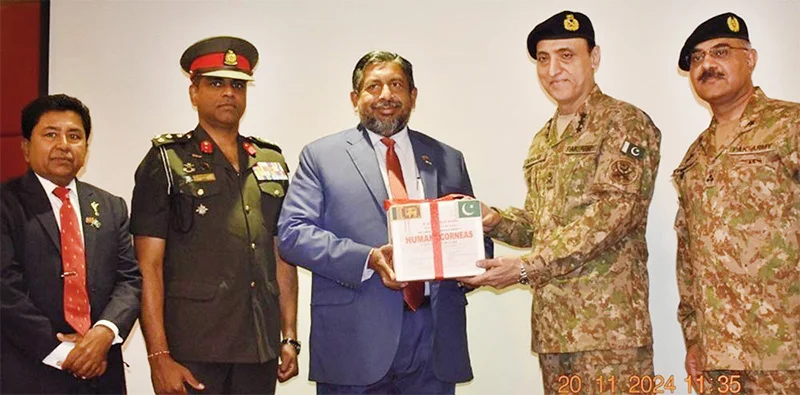
Reminiscences:
I was appointed Managing Director of the Ceylon Petroleum Corporation (CPC) and Chairman of the Trincomalee Petroleum Terminals Ltd (TPTL – Indian Oil Company/ Petroleum Corporation of Sri Lanka joint venture), in February 2023, by President Ranil Wickremesinghe. I served as TPTL Chairman voluntarily. TPTL controls the world-renowned oil tank farm in Trincomalee, abandoned after World War II. Several programmes were launched to repair tanks and buildings there. I enjoyed travelling to Trincomalee, staying at Navy House and monitoring the progress of the projects. Trincomalee is a beautiful place where I spent most of my time during my naval career.
My main task as MD, CPC, was to ensure an uninterrupted supply of petroleum products to the public.
With the great initiative of the then CPC Chairman, young and energetic Uvis Mohammed, and equally capable CPC staff, we were able to do our job diligently, and all problems related to petroleum products were overcome. My team and I were able to ensure that enough stocks were always available for any contingency.
The CPC made huge profits when we imported crude oil and processed it at our only refinery in Sapugaskanda, which could produce more than 50,000 barrels of refined fuel in one stream working day! (One barrel is equal to 210 litres). This huge facility encompassing about 65 acres has more than 1,200 employees and 65 storage tanks.
A huge loss the CPC was incurring due to wrong calculation of “out turn loss” when importing crude oil by ships and pumping it through Single Point Mooring Buoy (SPMB) at sea and transferring it through underwater fuel transfer lines to service tanks was detected and corrected immediately. That helped increase the CPC’s profits.
By August 2023, the CPC made a net profit of 74,000 million rupees (74 billion rupees)! The President was happy, the government was happy, the CPC Management was happy and the hard-working CPC staff were happy. I became a Managing Director of a very happy and successful State-Owned Enterprise (SOE). That was my first experience in working outside military/Foreign service.
I will be failing in my duty if I do not mention Sagala Rathnayake, then Chief of Staff to the President, for recommending me for the post of MD, CPC.
The only grievance they had was that we were not able to pay their 2023 Sinhala/Tamil New Year bonus due to a government circular. After working at CPC for six months and steering it out of trouble, I was ready to move out of CPC.
I was offered a new job as the Sri Lanka High Commissioner to Pakistan. I was delighted and my wife and son were happy. Our association with Pakistan, especially with the Pakistan Military, is very long. My son started schooling in Karachi in 1995, when I was doing the Naval War Course there. My wife Yamuna has many good friends in Pakistan. I am the first Military officer to graduate from the Karachi University in 1996 (BSc Honours in War Studies) and have a long association with the Pakistan Navy and their Special Forces. I was awarded the Nishan-e-Imtiaz (Military) medal—the highest National award by the Pakistan Presidentm in 2019m when I was Chief of Defence Staff. I am the only Sri Lankan to have been awarded this prestigious medal so far. I knew my son and myself would be able to play a quiet game of golf every morning at the picturesque Margalla Golf Club, owned by the Pakistan Navy, at the foot of Margalla hills, at Islamabad. The golf club is just a walking distance from the High Commissioner’s residence.
When I took over as Sri Lanka High Commissioner at Islamabad on 06 December 2023, I realised that a number of former Service Commanders had held that position earlier. The first Ceylonese High Commissioner to Pakistan, with a military background, was the first Army Commander General Anton Muthukumaru. He was concurrently Ambassador to Iran. Then distinguished Service Commanders, like General H W G Wijayakoon, General Gerry Silva, General Srilal Weerasooriya, Air Chief Marshal Jayalath Weerakkody, served as High Commissioners to Islamabad. I took over from Vice Admiral Mohan Wijewickrama (former Chief of Staff of Navy and Governor Eastern Province).
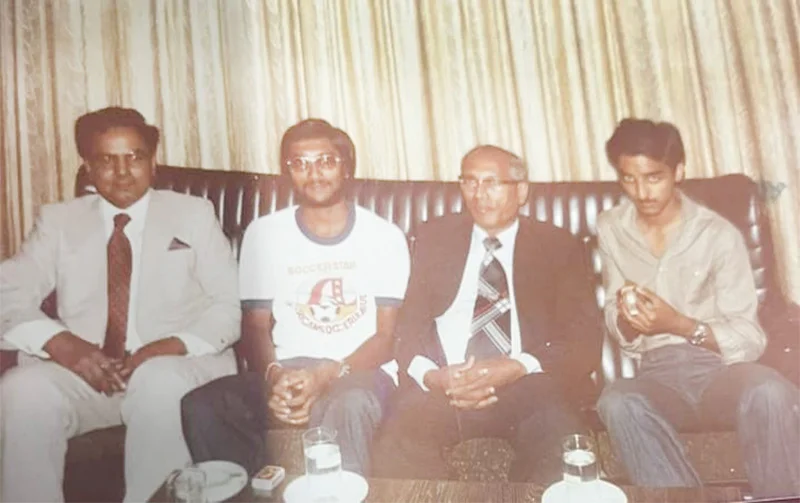
A photograph of Dr. Silva (second from right) in Brigadier
(Dr) Waquar Muzaffar’s album
One of the first visitors I received was Kawaja Hamza, a prominent Defence Correspondent in Islamabad. His request had nothing to do with Defence matters. He wanted to bring his 84-year-old father to see me; his father had his eyesight restored with corneas donated by a Sri Lankan in 1972! His eyesight is still good, but he did not know the Sri Lankan donor who gave him this most precious gift. He wanted to pay gratitude to the new Sri Lankan High Commissioner and to tell him that as a devoted Muslim, he prayed for the unknown donor every day! That reminded me of what my guru in Foreign Service, the late Foreign Minister Lakshman Kadirgamar told me when I was First Secretary/ Defence Advisor, Sri Lanka High Commission in New Delhi. That is “best diplomacy is people-to-people contacts.” This incident prompted me to research more into “Pakistan-Sri Lanka Eye Diplomacy” and what I learnt was fascinating!
Do you know the Sri Lanka Eye Donation Society has donated more than 26,000 corneas to Pakistan, since 1964 to date! That means more than 26,000 Pakistani people see the world with SRI LANKAN EYES! The Sri Lankan Eye Donation Society has provided 100,000 eye corneas to foreign countries FREE! To be exact 101,483 eye corneas during the last 65 years! More than one fourth of these donations was to one single country- Pakistan. Recent donations (in November 2024) were made to the Pakistan Military at Armed Forces Institute of Ophthalmology (AFIO), Rawalpindi, to restore the sight of Pakistan Army personnel who suffered eye injuries due to Improvised Explosive Devices (IED) blasts. This donation was done on the 75th Anniversary of the Sri Lanka Army.
Deshabandu Dr. F. G. Hudson Silva, a distinguished old boy of Nalanda College, Colombo, started collecting eye corneas as a medical student in 1958. His first set of corneas were collected from a deceased person and were stored at his home refrigerator at Wijerama Mawatha, Colombo 7. With his wife Iranganie De Silva (nee Kularatne), he started the Sri Lanka Eye Donation Society in 1961. They persuaded Buddhists to donate their eyes upon death. This drive was hugely successful.
Their son (now in the US) was a contemporary of mine at Royal College. I pledged to donate (of course with my parents’ permission) my eyes upon my death when I was a student at Royal college in 1972 on a Poson Full Moon Poya Day. Thousands have done so.
On Vesak Full Moon Poya Day in 1964, the first eye corneas were carried in a thermos flask filled with Ice, to Singapore, by Dr Hudson Silva and his wife and a successful eye transplant surgery was performed. From that day, our eye corneas were sent to 62 different countries.
Pakistan Lions Clubs, which supported this noble gesture, built a beautiful Eye Hospital for humble people at Gulberg, Lahore, where eye surgeries are performed, and named it Dr Hudson Silva Lions Eye Hospital.
The good work has continued even after the demise of Dr Hudson Silva in 1999.
So many people have donated their eyes upon their death, including President J. R. Jayewardene, whose eye corneas were used to restore the eyesight of one Japanese and one Sri Lankan. Dr Hudson Silva became a great hero in Pakistan and he was treated with dignity and respect whenever he visited Pakistan. My friend, Brigadier (Dr) Waquar Muzaffar, the Commandant of AFIO, was able to dig into his old photographs and send me a precious photo taken in 1980, 46 years ago (when he was a medical student), with Dr Hudson Silva.
We will remember Dr and Mrs Hudson Silva with gratitude.
Bravo Zulu to Sri Lanka Eye Donation Society!
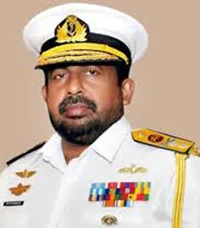 by Admiral Ravindra C Wijegunaratne
by Admiral Ravindra C Wijegunaratne
WV, RWP and Bar, RSP, VSV, USP, NI (M) (Pakistan), ndc, psn, Bsc
(Hons) (War Studies) (Karachi) MPhil (Madras)
Former Navy Commander and Former Chief of Defense Staff
Former Chairman, Trincomalee Petroleum Terminals Ltd
Former Managing Director Ceylon Petroleum Corporation
Former High Commissioner to Pakistan
Features
Lasting solutions require consensus
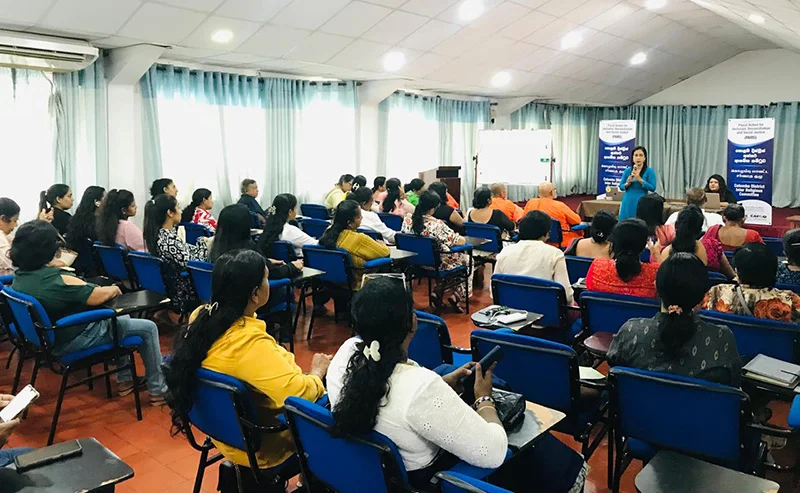
Problems and solutions in plural societies like Sri Lanka’s which have deep rooted ethnic, religious and linguistic cleavages require a consciously inclusive approach. A major challenge for any government in Sri Lanka is to correctly identify the problems faced by different groups with strong identities and find solutions to them. The durability of democratic systems in divided societies depends less on electoral victories than on institutionalised inclusion, consultation, and negotiated compromise. When problems are defined only through the lens of a single political formation, even one that enjoys a large electoral mandate, such as obtained by the NPP government, the policy prescriptions derived from that diagnosis will likely overlook the experiences of communities that may remain outside the ruling party. The result could end up being resistance to those policies, uneven implementation and eventual political backlash.
A recent survey done by the National Peace Council (NPC), in Jaffna, in the North, at a focus group discussion for young people on citizen perception in the electoral process, revealed interesting developments. The results of the NPC micro survey support the findings of the national survey by Verite Research that found that government approval rating stood at 65 percent in early February 2026. A majority of the respondents in Jaffna affirm that they feel safer and more fairly treated than in the past. There is a clear improving trend to be seen in some areas, but not in all. This survey of predominantly young and educated respondents shows 78 percent saying livelihood has improved and an equal percentage feeling safe in daily life. 75 percent express satisfaction with the new government and 64 percent believe the state treats their language and culture fairly. These are not insignificant gains in a region that bore the brunt of three decades of war.
Yet the same survey reveals deep reservations that temper this optimism. Only 25 percent are satisfied with the handling of past issues. An equal percentage see no change in land and military related concerns. Most strikingly, almost 90 percent are worried about land being taken without consent for religious purposes. A significant number are uncertain whether the future will be better. These negative sentiments cannot be brushed aside as marginal. They point to unresolved structural questions relating to land rights, demilitarisation, accountability and the locus of political power. If these issues are not addressed sooner rather than later, the current stability may prove fragile. This suggests the need to build consensus with other parties to ensure long-term stability and legitimacy, and the need for partnership to address national issues.
NPP Absence
National or local level problems solving is unlikely to be successful in the longer term if it only proceeds from the thinking of one group of people even if they are the most enlightened. Problem solving requires the engagement of those from different ethno-religious, caste and political backgrounds to get a diversity of ideas and possible solutions. It does not mean getting corrupted or having to give up the good for the worse. It means testing ideas in the public sphere. Legitimacy flows not merely from winning elections but from the quality of public reasoning that precedes decision-making. The experience of successful post-conflict societies shows that long term peace and development are built through dialogue platforms where civil society organisations, political actors, business communities, and local representatives jointly define problems before negotiating policy responses.
As a civil society organisation, the National Peace Council engages in a variety of public activities that focus on awareness and relationship building across communities. Participants in those activities include community leaders, religious clergy, local level government officials and grassroots political party representatives. However, along with other civil society organisations, NPC has been finding it difficult to get the participation of members of the NPP at those events. The excuse given for the absence of ruling party members is that they are too busy as they are involved in a plenitude of activities. The question is whether the ruling party members have too much on their plate or whether it is due to a reluctance to work with others.
The general belief is that those from the ruling party need to get special permission from the party hierarchy for activities organised by groups not under their control. The reluctance of the ruling party to permit its members to join the activities of other organisations may be the concern that they will get ideas that are different from those held by the party leadership. The concern may be that these different ideas will either corrupt the ruling party members or cause dissent within the ranks of the ruling party. But lasting reform in a plural society requires precisely this exposure. If 90 percent of surveyed youth in Jaffna are worried about land issues, then engaging them, rather than shielding party representatives from uncomfortable conversations, is essential for accurate problem identification.
North Star
The Leader of the Lanka Sama Samaja Party (LSSP), Prof Tissa Vitarana, who passed away last week, gave the example for national level problem solving. As a government minister he took on the challenge the protracted ethnic conflict that led to three decades of war. He set his mind on the solution and engaged with all but never veered from his conviction about what the solution would be. This was the North Star to him, said his son to me at his funeral, the direction to which the Compass (Malimawa) pointed at all times. Prof Vitarana held the view that in a diverse and plural society there was a need to devolve power and share power in a structured way between the majority community and minority communities. His example illustrates that engagement does not require ideological capitulation. It requires clarity of purpose combined with openness to dialogue.
The ethnic and religious peace that prevails today owes much to the efforts of people like Prof Vitarana and other like-minded persons and groups which, for many years, engaged as underdogs with those who were more powerful. The commitment to equality of citizenship, non-racism, non-extremism and non-discrimination, upheld by the present government, comes from this foundation. But the NPC survey suggests that symbolic recognition and improved daily safety are not enough. Respondents prioritise personal safety, truth regarding missing persons, return of land, language use and reduction of military involvement. They are also asking for jobs after graduation, local economic opportunity, protection of property rights, and tangible improvements that allow them to remain in Jaffna rather than migrate.
If solutions are to be lasting they cannot be unilaterally imposed by one party on the others. Lasting solutions cannot be unilateral solutions. They must emerge from a shared diagnosis of the country’s deepest problems and from a willingness to address the negative sentiments that persist beneath the surface of cautious optimism. Only then can progress be secured against reversal and anchored in the consent of the wider polity. Engaging with the opposition can help mitigate the hyper-confrontational and divisive political culture of the past. This means that the ruling party needs to consider not only how to protect its existing members by cloistering them from those who think differently but also expand its vision and membership by convincing others to join them in problem solving at multiple levels. This requires engagement and not avoidance or withdrawal.
by Jehan Perera
Features
Unpacking public responses to educational reforms
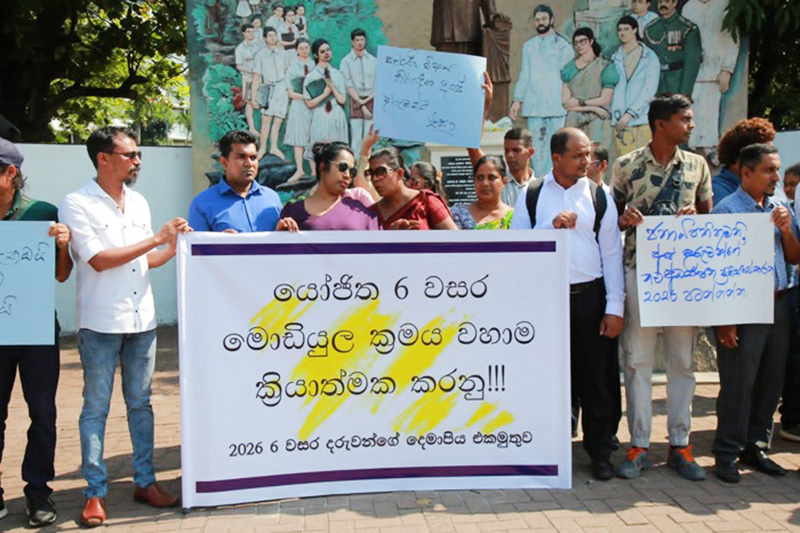
 As the debate on educational reforms rages, I find it useful to pay as much attention to the reactions they have excited as we do to the content of the reforms. Such reactions are a reflection of how education is understood in our society, and this understanding – along with the priorities it gives rise to – must necessarily be taken into account in education policy, including and especially reform. My aim in this piece, however, is to couple this public engagement with critical reflection on the historical-structural realities that structure our possibilities in the global market, and briefly discuss the role of academics in this endeavour.
As the debate on educational reforms rages, I find it useful to pay as much attention to the reactions they have excited as we do to the content of the reforms. Such reactions are a reflection of how education is understood in our society, and this understanding – along with the priorities it gives rise to – must necessarily be taken into account in education policy, including and especially reform. My aim in this piece, however, is to couple this public engagement with critical reflection on the historical-structural realities that structure our possibilities in the global market, and briefly discuss the role of academics in this endeavour.
Two broad reactions
The reactions to the proposed reforms can be broadly categorised into ‘pro’ and ‘anti’. I will discuss the latter first. Most of the backlash against the reforms seems to be directed at the issue of a gay dating site, accidentally being linked to the Grade 6 English module. While the importance of rigour cannot be overstated in such a process, the sheer volume of the energies concentrated on this is also indicative of how hopelessly homophobic our society is, especially its educators, including those in trade unions. These dispositions are a crucial part of the reason why educational reforms are needed in the first place. If only there was a fraction of the interest in ‘keeping up with the rest of the world’ in terms of IT, skills, and so on, in this area as well!
Then there is the opposition mounted by teachers’ trade unions and others about the process of the reforms not being very democratic, which I (and many others in higher education, as evidenced by a recent statement, available at https://island.lk/general-educational-reforms-to-what-purpose-a-statement-by-state-university-teachers/ ) fully agree with. But I earnestly hope the conversation is not usurped by those wanting to promote heteronormativity, further entrenching bigotry only education itself can save us from. With this important qualification, I, too, believe the government should open up the reform process to the public, rather than just ‘informing’ them of it.
It is unclear both as to why the process had to be behind closed doors, as well as why the government seems to be in a hurry to push the reforms through. Considering other recent developments, like the continued extension of emergency rule, tabling of the Protection of the State from Terrorism Act (PSTA), and proposing a new Authority for the protection of the Central Highlands (as is famously known, Authorities directly come under the Executive, and, therefore, further strengthen the Presidency; a reasonable question would be as to why the existing apparatus cannot be strengthened for this purpose), this appears especially suspect.
Further, according to the Secretary to the MOE Nalaka Kaluwewa: “The full framework for the [education] reforms was already in place [when the Dissanayake government took office]” (https://www.wsws.org/en/articles/2025/08/12/wxua-a12.html, citing The Morning, July 29). Given the ideological inclinations of the former Wickremesinghe government and the IMF negotiations taking place at the time, the continuation of education reforms, initiated in such a context with very little modification, leaves little doubt as to their intent: to facilitate the churning out of cheap labour for the global market (with very little cushioning from external shocks and reproducing global inequalities), while raising enough revenue in the process to service debt.
This process privileges STEM subjects, which are “considered to contribute to higher levels of ‘employability’ among their graduates … With their emphasis on transferable skills and demonstrable competency levels, STEM subjects provide tools that are well suited for the abstraction of labour required by capitalism, particularly at the global level where comparability across a wide array of labour markets matters more than ever before” (my own previous piece in this column on 29 October 2024). Humanities and Social Sciences (HSS) subjects are deprioritised as a result. However, the wisdom of an education policy that is solely focused on responding to the global market has been questioned in this column and elsewhere, both because the global market has no reason to prioritise our needs as well as because such an orientation comes at the cost of a strategy for improving the conditions within Sri Lanka, in all sectors. This is why we need a more emancipatory vision for education geared towards building a fairer society domestically where the fruits of prosperity are enjoyed by all.
The second broad reaction to the reforms is to earnestly embrace them. The reasons behind this need to be taken seriously, although it echoes the mantra of the global market. According to one parent participating in a protest against the halting of the reform process: “The world is moving forward with new inventions and technology, but here in Sri Lanka, our children are still burdened with outdated methods. Opposition politicians send their children to international schools or abroad, while ours depend on free education. Stopping these reforms is the lowest act I’ve seen as a mother” (https://www.newsfirst.lk/2026/01/17/pro-educational-reforms-protests-spread-across-sri-lanka). While it is worth mentioning that it is not only the opposition, nor in fact only politicians, who send their children to international schools and abroad, the point holds. Updating the curriculum to reflect the changing needs of a society will invariably strengthen the case for free education. However, as mentioned before, if not combined with a vision for harnessing education’s emancipatory potential for the country, such a move would simply translate into one of integrating Sri Lanka to the world market to produce cheap labour for the colonial and neocolonial masters.
According to another parent in a similar protest: “Our children were excited about lighter schoolbags and a better future. Now they are left in despair” (https://www.newsfirst.lk/2026/01/17/pro-educational-reforms-protests-spread-across-sri-lanka). Again, a valid concern, but one that seems to be completely buying into the rhetoric of the government. As many pieces in this column have already shown, even though the structure of assessments will shift from exam-heavy to more interim forms of assessment (which is very welcome), the number of modules/subjects will actually increase, pushing a greater, not lesser, workload on students.
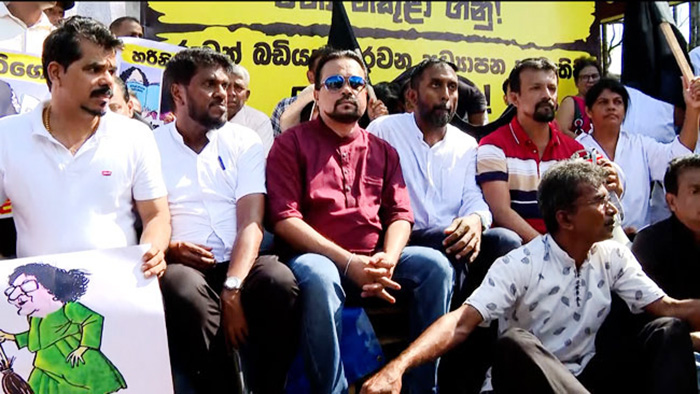
A file photo of a satyagraha against education reforms
What kind of education?
The ‘pro’ reactions outlined above stem from valid concerns, and, therefore, need to be taken seriously. Relatedly, we have to keep in mind that opening the process up to public engagement will not necessarily result in some of the outcomes, those particularly in the HSS academic community, would like to see, such as increasing the HSS component in the syllabus, changing weightages assigned to such subjects, reintroducing them to the basket of mandatory subjects, etc., because of the increasing traction of STEM subjects as a surer way to lock in a good future income.
Academics do have a role to play here, though: 1) actively engage with various groups of people to understand their rationales behind supporting or opposing the reforms; 2) reflect on how such preferences are constituted, and what they in turn contribute towards constituting (including the global and local patterns of accumulation and structures of oppression they perpetuate); 3) bring these reflections back into further conversations, enabling a mutually conditioning exchange; 4) collectively work out a plan for reforming education based on the above, preferably in an arrangement that directly informs policy. A reform process informed by such a dialectical exchange, and a system of education based on the results of these reflections, will have greater substantive value while also responding to the changing times.
Two important prerequisites for this kind of endeavour to succeed are that first, academics participate, irrespective of whether they publicly endorsed this government or not, and second, that the government responds with humility and accountability, without denial and shifting the blame on to individuals. While we cannot help the second, we can start with the first.
Conclusion
For a government that came into power riding the wave of ‘system change’, it is perhaps more important than for any other government that these reforms are done for the right reasons, not to mention following the right methods (of consultation and deliberation). For instance, developing soft skills or incorporating vocational education to the curriculum could be done either in a way that reproduces Sri Lanka’s marginality in the global economic order (which is ‘system preservation’), or lays the groundwork to develop a workforce first and foremost for the country, limited as this approach may be. An inextricable concern is what is denoted by ‘the country’ here: a few affluent groups, a majority ethno-religious category, or everyone living here? How we define ‘the country’ will centrally influence how education policy (among others) will be formulated, just as much as the quality of education influences how we – students, teachers, parents, policymakers, bureaucrats, ‘experts’ – think about such categories. That is precisely why more thought should go to education policymaking than perhaps any other sector.
(Hasini Lecamwasam is attached to the Department of Political Science, University of Peradeniya).
Kuppi is a politics and pedagogy happening on the margins of the lecture hall that parodies, subverts, and simultaneously reaffirms social hierarchies.
-

 Life style3 days ago
Life style3 days agoMarriot new GM Suranga
-

 Business2 days ago
Business2 days agoMinistry of Brands to launch Sri Lanka’s first off-price retail destination
-

 Features3 days ago
Features3 days agoMonks’ march, in America and Sri Lanka
-

 Opinion6 days ago
Opinion6 days agoWill computers ever be intelligent?
-

 Features3 days ago
Features3 days agoThe Rise of Takaichi
-

 Features3 days ago
Features3 days agoWetlands of Sri Lanka:
-

 News3 days ago
News3 days agoThailand to recruit 10,000 Lankans under new labour pact
-

 News3 days ago
News3 days agoMassive Sangha confab to address alleged injustices against monks













